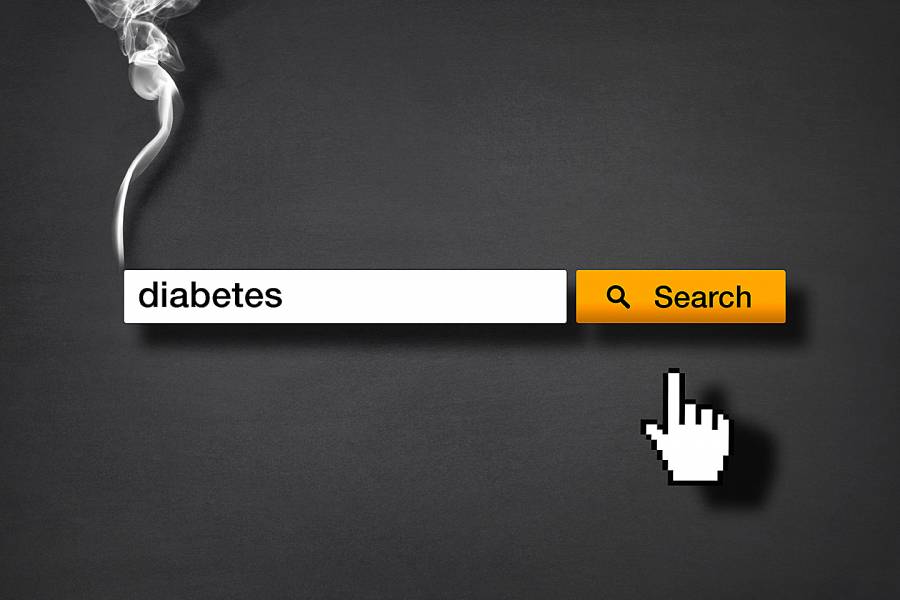This content is provided to Johns Hopkins employees through a partnership with EHP.
November's Focus on Wellness feature covers two important topics: diabetes and smoking cessation. November is National Diabetes Month as well as the time that the Great American Smoke Out takes place.
When you have diabetes, quitting smoking is one of the most important things you can do to help your health. Both diabetes and smoking cause health problems on their own, but together they are more likely to cause serious damage to your blood vessels, eyes, and kidneys. The combination puts you at higher risk for early death from problems such as stroke, kidney failure, and heart attack. Smoking raises your risk of having type 2 diabetes by increasing the accumulation of "bad" fat around your belly and increasing inflammation all over your body. Smoking during pregnancy increases the risk of your unborn child having diabetes later in life.
Know your health risks
Smoking when you have diabetes raises your risk for serious health problems. These include:
- Cardiovascular disease. Blood vessels in the body can be blocked with plaque, a sticky substance that can lead to heart attack or stroke. You may have heart rhythm problems, heart valve problems, or heart failure.
- Diabetic kidney disease, also known as diabetic nephropathy. Damage to blood vessels in the kidneys causes the kidneys to not work well or to stop working fully. Kidney failure then needs to be treated with dialysis or kidney transplant.
- Diabetic retinopathy. This is an eye disease that causes vision problems because of blood vessel damage in the eyes. It can lead to blindness.
- Peripheral neuropathy. Damage to nerves around the body can cause sharp pain, a burning feeling, numbness, weakness, and trouble moving.
- Peripheral artery disease. Poor blood flow in the legs and feet can lead to infections, sores that don't heal well, and sometimes the need to amputate toes or feet.
- Blood sugar problems. Smoking can affect the way your body uses insulin and make it harder for you to control your blood sugar levels. You may need larger doses of insulin to manage your blood sugar.
Make a quitting plan
Quitting smoking can be hard, so make a plan that will help you stay on track. Talk with your friends, family, and health care provider. Discuss the ways to quit, and which may be best for you. Set a quit date for yourself, at a time when your stress will be lower.
Ask your health care provider about methods to help you stop smoking, such as:
- Nicotine aids. Don't use e-cigarettes or vaping products, but a patch, gum, lozenge, nasal spray, or inhaler that has nicotine may help you. While using nicotine from any source, you may still have trouble controlling your blood sugar.
- Prescription medicine. Talk with your health care provider about medicines that can help you stop smoking.
- Alternative therapies. Hypnosis and acupuncture may be helpful.
- Other support. You can sign up for texting services, create a quit plan, and get helpful tools on Smokefree.gov or by calling 800-QUIT-NOW (800-784-8669).
Smoking cessation resources
Take advantage of videos, articles, and treatment options available to you as a Johns Hopkins employee:
- Smoking and Tobacco Cessation page of the Benefits & Worklife website: Review resources provided through the university's medical plans.
- Aetna Resources for Living: Explore an online library of quit-smoking videos and articles. For access, use JHU as both the user name and password.
- myStrength app: Download this mobile app to access interactive nicotine recovery resources that include mindfulness exercises.
- On-demand webinar: Visit the Workshops and Webinars page of the Benefits & Worklife website to watch Positive Change: Achieving the Goal of Becoming a Nonsmoker.
- Johns Hopkins Tobacco Treatment Clinic: Obtain a smoking cessation plan that will meet your individual needs.
Posted in Health+Well-Being
Tagged hr newswire








